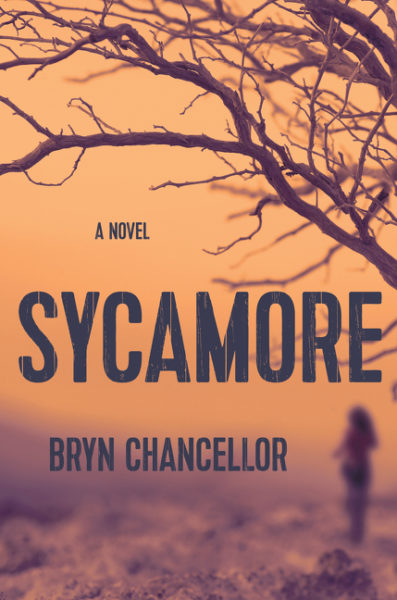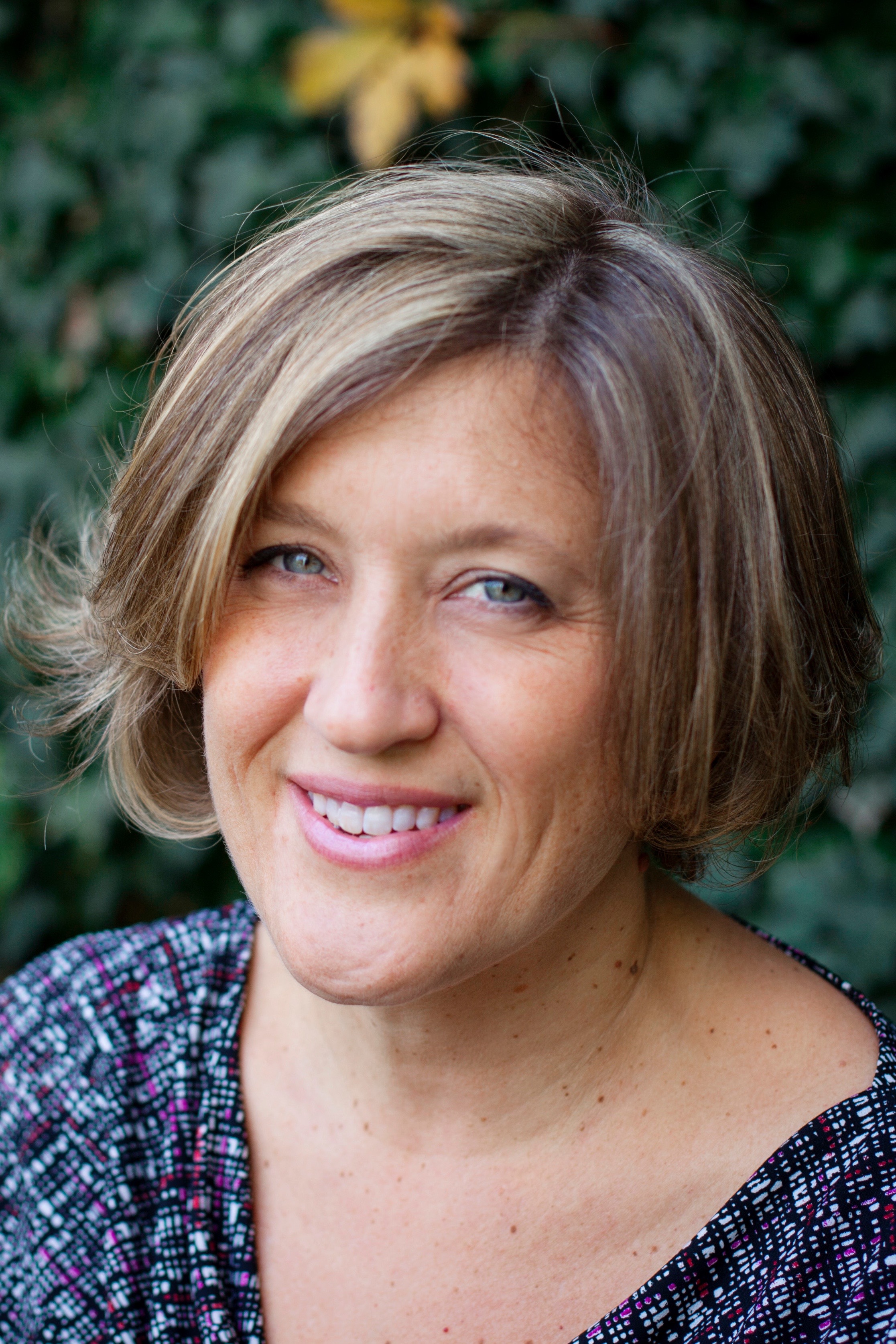UNC Charlotte author Bryn Chancellor’s debut novel, Sycamore, has earned critical acclaim on the national stage, lauded as a riveting tale of how a teen-age girl’s mysterious disappearance has haunted her Arizona hometown and how the discovery of her remains leads to unexpected healing and forgiveness.
In its list of “O’s Top 20 Books to Read This Summer,” O: The Oprah Magazine called Sycamore (Harper/HarperCollins) hypnotic. “Chancellor shifts nimbly between past and present and from character to character, cutting away the net of riddles that ensnares Sycamore’s residents,” the review stated.
Amazon has listed Chancellor’s novel as among the “Best Literature and Fiction of 2017 So Far” and named it one of its “Best Books of the Month” selections for May. Independent booksellers from across the nation named the book to its June Indie Next List of bookseller-recommended favorites. Glamour magazine, New York Post, and the online community Bustle named it to their book recommendation lists.
“A mystery, a coming-of-age story, and an ensemble drama are woven together in this tale of love, loss, grief…and human remains found deep in the desert,” Glamour stated in its “New Books by Women You’re Guaranteed to Love This Summer” article.
In her book, Chancellor details a series of events that unfold across close to two decades. Out for a hike one scorching afternoon in Sycamore, Arizona, a newcomer to town stumbles across what appear to be human remains embedded in the wall of a dry desert ravine. Sycamore’s longtime residents fear the bones may belong to Jess Winters, a teenage girl who disappeared suddenly 18 years earlier. In the days it takes the authorities to make an identification, the residents rekindle stories, rumors, and recollections both painful and poignant as they revisit Jess’s troubled history. In resurrecting the past, the people of Sycamore will find clarity, unexpected possibility, and a way forward for their lives.
Chancellor turned to her home state of Arizona and her hometown of Sedona and the neighboring towns of Cottonwood and Clarkdale as influence for her novel’s setting, drawing from her intimate knowledge of the place and people. “A fictionalized version allowed me some distance to rearrange and create features and timelines that I needed,” Chancellor says. “In many ways, though, I see this book as a love letter to my hometown.”
The novel began life as a set of individual stories.
“I was tearing my hair out over a different novel, so I took a break from it and started writing what I thought were stories,” Chancellor says. “I knew the stories were all set in one small town, but I had conceived of them as distinct pieces that would stand on their own, even as characters recurred. I had early drafts of a few stories, and then this missing friend kept popping up. Then a character found bones, and I thought to myself, “Oh, this is a novel.” ”
In addition to the attention Sycamore has received, Chancellor won the Prairie Schooner Book Prize in Fiction for 2014 for her manuscript, When Are You Coming Home? The prize included publication of the manuscript by the University of Nebraska Press.
The When Are You Coming Home? collection reflects the lives of Arizona characters and the intangibles of home. The stories capture love, loss, and grief while also portraying hope with an element of mystery.
“Chancellor’s is a collection to aspire to—it feels cohesive and each of the nine stories, set primarily in Arizona, carries its own weight and import,” Colorado Review said about When Are You Coming Home? “The humor woven throughout is subtle, yet effective. We trust the voice and sensibility. And most importantly, Chancellor elevates her book through her sensitivity and through an abiding awareness that her characters’ lives are meaningful. This may sound like a simple thing to achieve, but it isn’t. She convinces us that these people and what they’re going through matter.”
In 2014, Chancellor was selected as the Poets & Writers Maureen Egen Writers Exchange winner in fiction, and she received a Literary Arts Fellowship from the Alabama State Council on the Arts. Gulf Coast, Blackbird, Colorado Review, Crazyhorse, Phoebe, and other publications have published her short fiction. A graduate of Vanderbilt University’s MFA program, she was an assistant professor at the University of Montevallo in Alabama before joining the faculty at UNC Charlotte in the Department of English.
When she is writing, Chancellor loses herself in what she describes as a dreamy space between the real and the imagined.
“I try and hold onto that process, as messy and hard as it is, because that’s what sustains me,” she says. “Right now, I just finished a short story and I have the early pages of what I think may be a new novel. I try not to think about what a story or novel will do once it’s finished. If I’m thinking about publishing while I’m writing, I’m in trouble. Writing and publishing really are separate animals. As a writer, the one true thing you can control is the writing.”
The desire to explore the inner lives of working people who live in marginal places, and who often go unnoticed in life and in literature, influences Chancellor’s writing.
“A friend, upon finishing Sycamore, wrote to me that it made the reader see the full poetic inner lives of ordinary people, which I loved, and also that he had started to write poetry in the mornings, which I loved even more,” she says.
She is reminded of Robert Pinsky’s “Favorite Poems Project,” created during his time as the 39th Poet Laureate of the United States. In just one year of that project, 18,000 people wrote in to share their favorites. Short videos showcase everyday people reading aloud poems they love.
“These videos are deeply moving, partly because of the poems themselves but more because of knowing how these people are carrying such language and beauty around inside them while they go about their work and their lives,” she says. “What else might they be thinking of? What else might they know? These are questions that drive me as a writer, and I would hope that readers would take time to wonder about others, to marvel at what they don’t know.”
Words: Hannah Rayburn, CLAS Intern | Image: Christy Whitney








